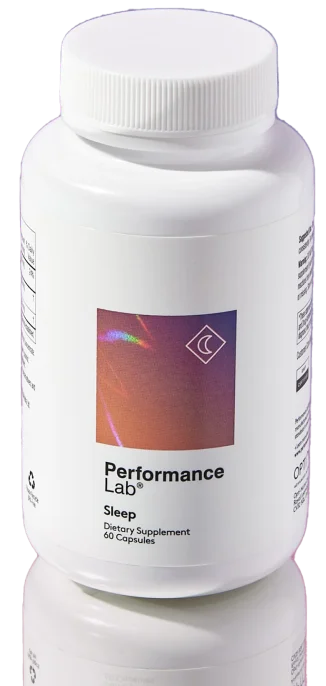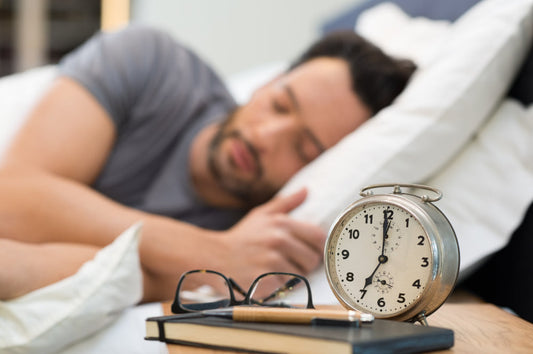I’m sure you know the feeling… you consume a large meal, such as a Thanksgiving dinner, and afterwards all you want to do is slump down in your chair and take a nap.
There’s even a name for it: a food coma, technically known as postprandial somnolence. I don’t know about you, but the idea that it’s a recognized phenomenon makes me feel a little better – at least, it’s not just me!
But why does it happen? And is turkey really to blame?
If you’ve ever wondered why a whole room full of people enjoy a collective sleep after a big meal, keep on reading.
Who knows, once you know the reasons why it happens, perhaps you can learn to enjoy your meals without feeling excessively tired. And then you won't ruin your sleep at night.
What is a Food Coma?
Don't confuse a food coma with a serious medical coma - there's no loss of consciousness here. Instead, it's simply all about feeling tired after a meal.
Medical name postprandial somnolence, it's also commonly known as the post lunch dip, meaning you're likely to feel its effects in the early afternoon following lunch.
While there hasn't been a lot of research into this phenomenon, symptoms typically include:
-
Lethargy
-
Sleepiness
-
Low energy levels
-
Poor concentration
-
Perhaps even physical exhaustion. (1)
Does Eating Turkey Make You Sleepy?

Does eating turkey make you sleepy, or is it a myth?
People often say the tryptophan found in turkey causes the post-Thanksgiving dinner drowsiness. After all, tryptophan is an essential amino acid that helps with sleep regulation.
Let's examine that a bit more...
Tryptophan, the 'Sleep Promoting' Amino Acid
So here's what happens when you're eating turkey, or any food containing tryptophan.
The human body converts some of the tryptophan you've consumed into 5-HTP before converting it into serotonin, the 'feel good' chemical. Strong serotonin levels help to balance mood and sleep.
The tryptophan to serotonin process is then taken a step further when the serotonin is converted into the 'sleep hormone', melatonin. This is the hormone that regulates the sleep cycle or circadian rhythm and helps the body fall asleep.
For these reasons, tryptophan has been shown to improve subjective sleep quality and decrease wakefulness. (2)
Here's the problem with the above theory about turkey, however: there's just not enough tryptophan in turkey to make you really sleepy. Not on its own, anyway.
The EAR for tryptophan (Estimated Average Requirement) for most adults is 4-5mg per kg of weight. So a 70-kilo adult, for instance, will need around 280-350 mg of the amino acid a day. A 90 kilo adult will need between 360-450mg a day. (3)
Now that amount is just for good health, and not specifically for sleep. Many adults take tryptophan supplements for mood issues, insomnia or poor sleep, and they take much bigger dosages. Up to 4-5g per day have been reported. (4)
In contrast, two servings of turkey equals around 410mg - so you'd need to eat around 20 servings to get the same effect (which we certainly don't advise!) (5)
Turkey, by the way, isn't the only food with natural l tryptophan. Many other foods, such as chicken, cheese, egg whites, pumpkin seeds, sesame seeds, and sunflower seeds, are also high in tryptophan.
But if the turkey isn't likely to make you sleepy without visiting the buffet table 20 times, what other factors could be at play here?
What Else Might Cause a Food Coma?

Overeating a Big Meal - and not just a Big Thanksgiving Meal!
It's fair to say that there hasn't been a whole lot of research on food comas, but - as the name would suggest - it appears that eating a large meal, or specifically overeating, may be a trigger.
The research:
-
Fruit flies given larger meals enjoyed a longer post-meal nap. Postprandial somnolence was noted specifically with meals high in protein and salt, but not in sucrose. The amount consumed also determined how much the flies slept. (6)
-
Men who overate pizza (told to eat as much as they could) were more lethargic, sleepy and physically tired for the four hours after eating, compared to men who just ate a comfortable amount. (7)
-
An older study of drivers and their afternoon driving ability compared the impact of a light lunch versus a heavy lunch with three times the calories. It noted that drivers eating the latter deviated from their lanes more over a subsequent two hour period in a driving simulation than others. (8)
But why might a big meal make you feel sleepy?
Eating a lot of calories encourages the body's release of a protein called IL-1, which has been shown to make you feel tired, hence postprandial fatigue. (9)
Eating High Fat Foods
Similarly, the type of food you eat can also contribute to the post-food slump. Thanksgiving dinner, for example, often features high fat options such as stuffing, gravy, mashed potatoes. Yum.
But research has shown that levels of a hormone called cholecystokinin (CCK) increase after a high fat meal - and, you guessed it, high levels of CCK may make you feel drowsy. (10)
Carbs and Blood Sugar Changes

Research shows us that high-carbohydrate and high fat meals lead to post-meal sleepiness, usually lulling you to sleep an hour to an hour-and-a-half after you finish eating.
That's because carb-based high GI foods in particular cause you to fall asleep quicker. GI stands for Glycemic Index which measures how quickly your blood sugar increases in relation to certain foods.
High GI foods such as mashed potatoes, pumpkin pie, and other tasty dishes - often found on a Thanksgiving table or at any other celebratory meal - can raise blood sugar levels, leading to an insulin surge.
This in turn makes it easier for the tryptophan to travel via your blood to your brain, and increases sleepiness. (11, 12)
Alcohol Intake Can Make You Feel Sleepy
Holiday drinking is a thing. Washing down your meals and accompanying your afternoon ball games with wine, beer, cocktails... it's easy to drink more than your normal amount. Especially if you're stressed by the holidays (or family) and travel. Or all three.
Of course, alcohol slows down the brain and relaxes your central nervous system, meaning you'll likely feel sleepy after a drink or three.
Don't forget, however, that while it may help you fall asleep faster if you drink in the evenings, it usually interrupts your sleep in the second part of the night. (13)
Your Body Increases Blood Flow to the Digestive System
When we eat a large meal, blood flow moves from the head to the gastrointestinal system to help us digest it quicker. Once again, this can make us feel tired. This is known as postprandial hyperemia. (14, 15)
Or... an Alternative Theory about the Post-Lunch Dip
While most people agree that a large meal with all the associated factors above can cause sleepiness, here's another theory to ponder: the post-lunch dip may not be caused by eating at all. It could be biological, or even evolutionary.
The theory is that people naturally experience energy dips because of hormonal fluctuations and our circadian rhythms. These dips usually occur between midnight and dawn, and again (a smaller dip) between 1pm-3pm typically.
Researchers believe that some people are more susceptible to this post-lunch dip, and it occurs even if they haven't had any food and if they don't know the time.
'Extreme morning type individuals' may be more likely to experience this. A large carbohydrate-based meal also exacerbates it - as does poor sleep the night before. (16)
How to Avoid Drowsiness
To avoid the risk of sleepiness after a meal - and it ruining your evening Zzzs - try following these quick tips:
-
To avoid feeling sleepy after a big meal, eat slowly, eat smaller portions, and balance meals with protein, healthy fats, and fiber.
-
Drinking water throughout the day will help to prevent dehydration and reduce sleepiness.
-
Limit alcohol intake and avoid those extra few drinks to help regulate sleep patterns and improve overall sleep quality.
-
Eating a variety of foods, including fruits, vegetables, and whole grains, can provide the necessary nutrients for a good night’s sleep.
-
Take a short walk or engage in light physical activity after eating to help increase blood flow and reduce sleepiness.
Best Natural Aid for Better Sleep

It probably goes without saying but putting yourself into a food coma isn't really the best way to improve your sleep in the long run. Neither is chomping on turkey before you go to bed.
Napping during the day can ruin your sleep at night, but if you're trapped in a cycle of poor sleep, you may be interested in a natural aid such as Performance Lab Sleep.
It includes just four research-backed ingredients, one of which is tryptophan. This is backed with Montmorency tart cherries - one of the best sources of natural safe, low dose melatonin around.
Finally, we have magnesium to help relax muscles and lemon balm to quell anxiety.


Final Thoughts
Now that you know what contributes to a food coma - and it's not just the tryptophan in turkey - you can actively avoid falling victim to it.
Eating a balanced diet, staying hydrated, and practicing good sleep hygiene can help improve sleep quality overall and reduce post-meal sleepiness.
An effective natural sleep aid like Performance Lab Sleep may also help you get enough sleep and promote relaxation at night, so you won't suffer from the post lunch dip during the day.














